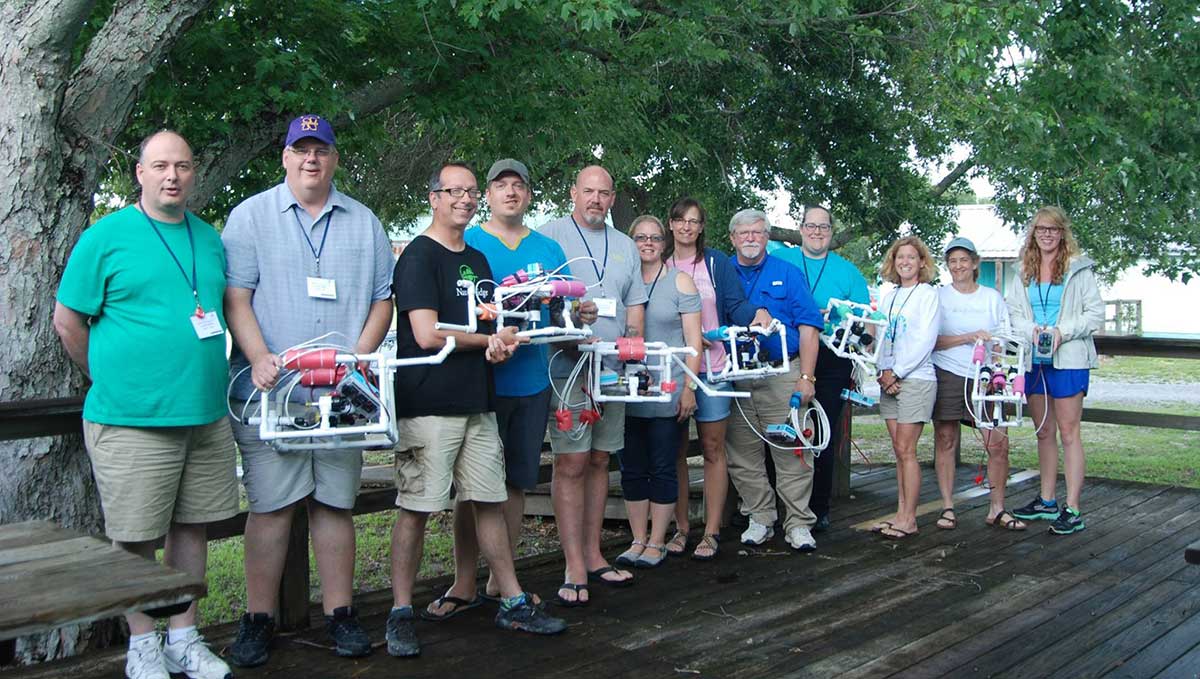
The Dauphin Island Sea Lab hosted a dozen teachers from three states for the first teacher workshop of the summer. The Technology in Marine Science workshop introduced educators to remotely operated vehicles (ROVs), explored the use of ROVs in marine science, and taught the educators how to build an underwater ROV from the ground up.
The workshop drew a diversity of educators who teach career technology, biology, engineering, physical science and mathematics at the elementary, middle and high school level, and came from Alabama, Louisiana, and Washington state.
"The program here has been really beneficial to us coming all this way on summer break to go back and do something that's hands-on training that our students can see exactly what they can do with this technology," said Ryan McNeal of Mill Creek Middle School in Kent, Washington. "It's a great push for students to learn, and to be involved in the classroom, and to be really enriched in learning a new technology."
"ROVs are a great way to bring STEM and STEAM activities into the classroom," Dr. Tina Miller-Way, the chair of Discovery Hall Programs, said. "ROVs can be brought into the classroom at various levels, because they lend themselves varying levels of complexity."
Along with building an ROV, the teachers boarded the R/V Alabama Discovery with Fisheries Lab Manager Crystal Hightower for an opportunity to drive a research level ROV in a real world situation. Their mission, which was successful, was to find fish occupying offshore reefs. Dr. Miller-Way also showed the educators how to use common oceanographic equipment including a CTD, which measures conductivity, temperature and depth, as well as, trawling and collecting plankton.
Mid-week, Dr. Adam Skarke from Mississippi State University shared how ROVs can be used in research. His presentation included how ROVs have improved the understanding of the deep in the Gulf of Mexico from the discovery of a tar lily to an undisturbed 1800s shipwreck.
"ROV technology is a growing tool that students need to know about, and need to be able to understand, and actually practice that," Stan Arington of Auburn High School said. "Lots of job opportunities as technology increases in ocean exploration, in aquaculture science, in aquatic sciences, and even freshwater exploration. So, I think this workshop and the information that was shared with us as educators here is extremely important in bringing that back to our school and sharing that with our students."
On the final night of the workshop, the teachers took their ROVs for a drive in a mock competition similar to the Northern Gulf Regional Competition hosted by Dauphin Island Sea Lab's Discovery Hall Programs in the spring.